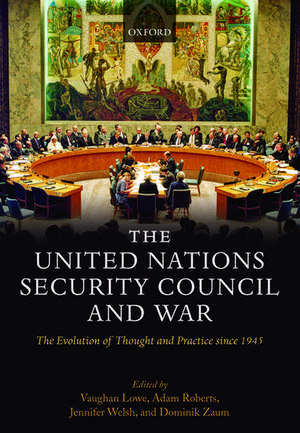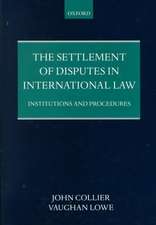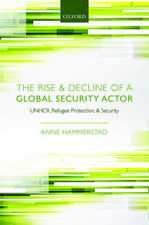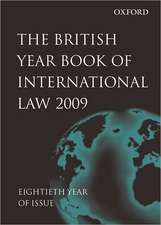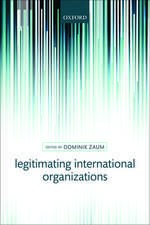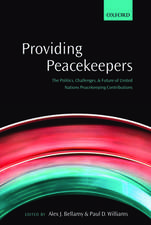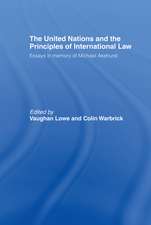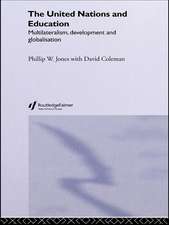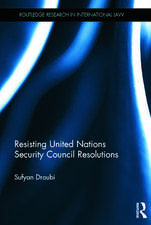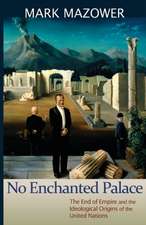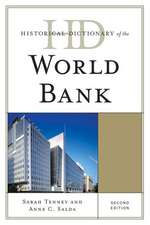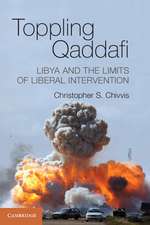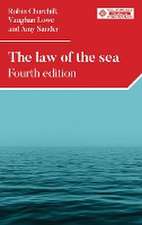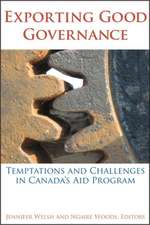The United Nations Security Council and War: The Evolution of Thought and Practice since 1945
Vaughan Lowe, Adam Roberts, Jennifer Welsh, Dominik Zaumen Limba Engleză Paperback – 15 apr 2010
Preț: 429.14 lei
Preț vechi: 486.78 lei
-12% Nou
Puncte Express: 644
Preț estimativ în valută:
82.13€ • 85.42$ • 68.73£
82.13€ • 85.42$ • 68.73£
Carte tipărită la comandă
Livrare economică 04-10 martie
Preluare comenzi: 021 569.72.76
Specificații
ISBN-13: 9780199583300
ISBN-10: 0199583307
Pagini: 816
Ilustrații: black & white tables
Dimensiuni: 172 x 245 x 47 mm
Greutate: 1.35 kg
Editura: OUP OXFORD
Colecția OUP Oxford
Locul publicării:Oxford, United Kingdom
ISBN-10: 0199583307
Pagini: 816
Ilustrații: black & white tables
Dimensiuni: 172 x 245 x 47 mm
Greutate: 1.35 kg
Editura: OUP OXFORD
Colecția OUP Oxford
Locul publicării:Oxford, United Kingdom
Recenzii
A definitive interdisciplinary work on an important subject ... The depth of knowledge and experience provides fascinating and essential reading for anyone interested in the area of international peace and security, regardless of their disciplinary background and whether practitioner or academic
The United Nations Security Council and War is an essential work, full of astute observations. Set apart by the wealth of ideas and diversity of viewpoints, this edited collection provides a seminal and well-balanced account of the Security Council's dealing with war since 1945.
a magnificent achievement... this book will stand out as an indispensable tool in the vast literature on the UN Security Council, set apart by the quality of its research, the wealth of extensive and carefully researched data it contains, as well as the diversity of viewpoints it offers.
An incredible achievement, magisterial and definitive. This is an essential work on anyone's bookshelf.
this excellent edited collection ... consistently high standard we should not forget that for better or worse the UN can only work well when its Great Powers work together. Analysts and policy-makers alike would be better prepared to bring this about if they read this important new book.
This substantial, comprehensive, and authoritative volume contains 28 chapters by leading academics, lawyers, and practitioners, plus detailed appendices covering UN resolutions, sanctions, and operations.
Overall, the book contains an insightful analysis of the way the SC has been addressing the issue of war...provides an excellent exposition of the political and legal parameters - often translated as constraints - within which the SC operates, and assesses their impact on the SC's action in an un-emotive but perceptive manner
The United Nations Security Council and War is an essential work, full of astute observations. Set apart by the wealth of ideas and diversity of viewpoints, this edited collection provides a seminal and well-balanced account of the Security Council's dealing with war since 1945.
a magnificent achievement... this book will stand out as an indispensable tool in the vast literature on the UN Security Council, set apart by the quality of its research, the wealth of extensive and carefully researched data it contains, as well as the diversity of viewpoints it offers.
An incredible achievement, magisterial and definitive. This is an essential work on anyone's bookshelf.
this excellent edited collection ... consistently high standard we should not forget that for better or worse the UN can only work well when its Great Powers work together. Analysts and policy-makers alike would be better prepared to bring this about if they read this important new book.
This substantial, comprehensive, and authoritative volume contains 28 chapters by leading academics, lawyers, and practitioners, plus detailed appendices covering UN resolutions, sanctions, and operations.
Overall, the book contains an insightful analysis of the way the SC has been addressing the issue of war...provides an excellent exposition of the political and legal parameters - often translated as constraints - within which the SC operates, and assesses their impact on the SC's action in an un-emotive but perceptive manner
Notă biografică
Vaughan Lowe is Chichele Professor of Public International Law, and a Fellow of All Souls College, in the University of Oxford. He also practices in the field of international law as a barrister from Essex Court Chambers, London and has appeared in cases before English and International courts, and sits on international tribunals. Sir Adam Roberts is now President of the British Academy. Previous to this (from 1986 to 2007) he was Montague Burton Professor of International Relations at Oxford University, and a Fellow of Balliol College. His books include (ed. with Benedict Kingsbury), United Nations, Divided World: The UN´s Roles in International Relations, 2nd edn. (Oxford University Press, 1993), and (ed. with Richard Guelff), Documents on the Laws of War, 3rd edn. (Oxford University Press, 2000). Jennifer Welsh is Professor in International Relations at the University of Oxford and a Fellow of Somerville College. She is the author, most recently, of At Home In The World: Canada's Global Vision For The 21st Century (HarperCollins, 2004), and editor of Humanitarian Intervention and International Relations (Oxford Univeristy Press, 2003). She was recently named a Trudeau Fellow, and is currently on a Leverhulme research grant working on a project on 'sovereignty as responsibility'. Dominik Zaum is Lecturer in International Relations at the University of Reading, and author of The Sovereignty Paradox: The Norms and Politics of International Statebuilding (Oxford: Oxford University Press, 2007).
